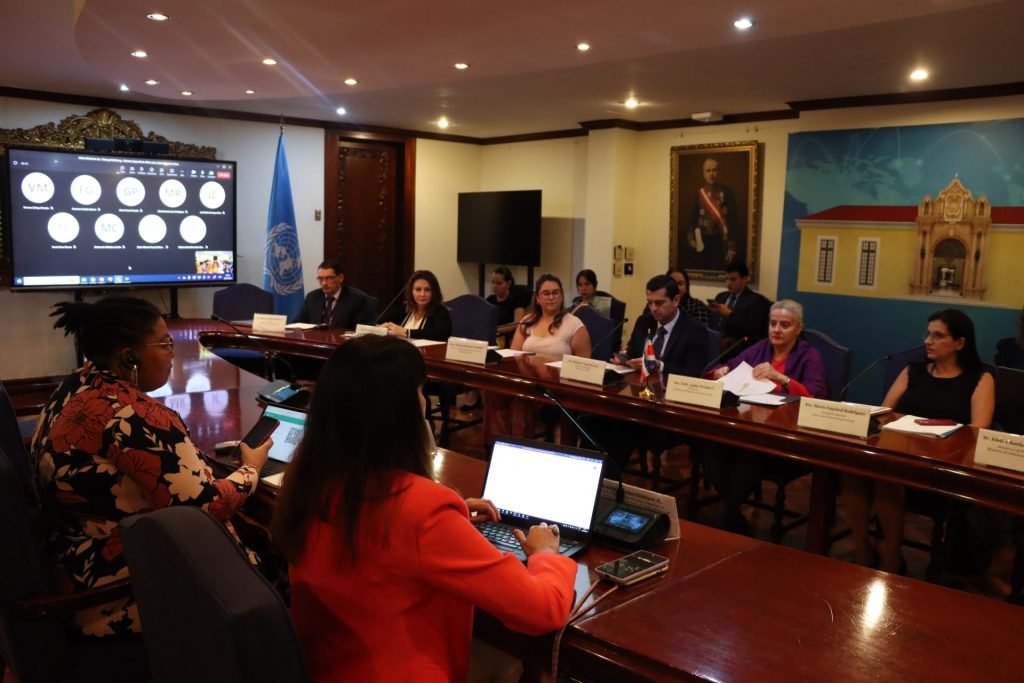San Jose, 18 July 2023(TDI): Tlaleng Mofokeng, the United Nations (UN) Special Rapporteur on the Right of Everyone to the Best Possible Physical and Mental Health, arrived in Costa Rica on Tuesday for a two-week visit.
The welcome and inaugural work session was held at Casa Amarilla, the headquarters of the Ministry of Foreign Affairs and Worship (MREC), where she was greeted by Lydia Peralta, Minister of Foreign Relations and Worship.
Tlaleng Mofokeng @drtlaleng, Relatora Especial sobre el Derecho de toda persona al disfrute del más alto nivel posible de salud física y mental de las @ONU_es inició este martes una visita oficial a Costa Rica que se extenderá durante dos semanas.
— Cancillería Costa Rica 🇨🇷 (@CRcancilleria) July 18, 2023
📑https://t.co/L2qVQlGw9P pic.twitter.com/K8aNneYlhq
She was also greeted by Christian Guillermet, Vice Minister for Multilateral Affairs, who will be taking a position as Costa Rica’s permanent representative for the United Nations in Geneva, Switzerland.
Read More: WHO calls for Urgent Mental Health Care Transformation
The position is at the headquarters of the Organization’s Human Rights Council, which she will join in August.
The first day’s session featured Esteban Vega de la O, Vice Minister of Health; Marta Esquivel, President of the Costa Rican Social Security Fund; and members of Interdisciplinary Mental Health Teams (EISAM), amongst others.

Between Wednesday and Friday, the Rapporteur will meet with representatives from the following sectors: “women, indigenous peoples, and disability”; “social inclusion and statistics”; and “agriculture, social security, and justice.”
From July 24 to 28, the UN delegate will visit the Vilma Curling Rivera Institutional Care Centre (women’s jail).
She will continue with sectoral discussions on “Education and communication”, “Children”, “Economy and Commerce”, and “Migration”.
Mofokeng’s program also includes visits to Limón, as well as a concluding meeting on July 31 at the Ministry of Foreign Relations and Worship.
Previous actions taken by Costa Rica for Mental Health
Costa Rica’s Legislative Assembly approved a difficult bill to establish a National Act on Mental Health.
The law employs an antiquated biological approach to treat persons who may be in a mental health crisis or who have mental health disorders, commonly known as psychosocial impairments.
The bill is based on an outdated mental health care framework based on medication and inpatient unlawful treatment.
This has been questioned by a variety of stakeholders, including the World Health Organisation (WHO) and United Nations treaty bodies such as the Committee on the Rights of Persons with Disabilities.















